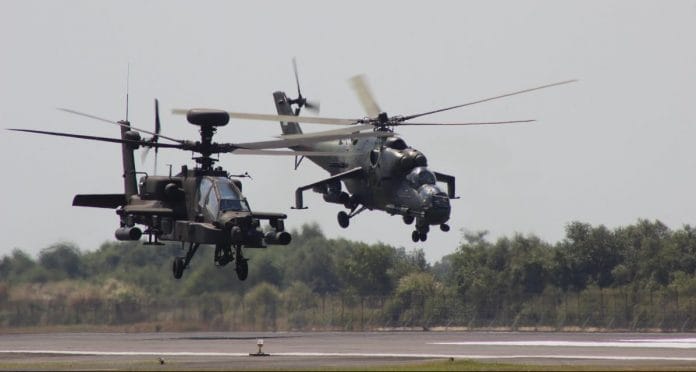The Pentagon’s position is that the agreement is required by law if the US is to export sensitive military equipment to a country.
New Delhi: The Indian Army has objected to a military secrecy pact with the United States ahead of the maiden ‘2+2’ dialogue involving the defence and foreign ministers of the two countries in Delhi this September.
Speaking on the proposed Communications Compatibility and Security Agreement (COMCASA), an official source told ThePrint, “We risk compromising our encrypted (coded) communication and a leak of information to Pakistan.”
In a note to the government, the Indian Army has asked if it would be wise to sign the COMCASA. The government is yet to make up its mind.
The note makes two points:
1) The US was asked if signing the COMCASA could mean that it could listen to or see encrypted (coded) communication of the Indian military.
The US said yes, it could, but added that it was not its policy
2) The US was asked if this information could be shared with others, notably Pakistan.
The US said it had adequate firewalls.
The COMCASA is a re-named version of a pact that was first proposed more than 10 years ago, the Communications Interoperability and Secrecy Memorandum of Agreement (CISMOA).
The Pentagon’s position is that the COMCASA is required by law if the US is to export sensitive military equipment to a country, describing it as a “foundational agreement” for military-to-military cooperation.
In the note, the Army said India was in the process of buying sensitive equipment from the US.
This includes two major platforms: The M777 ultra light howitzers (the first of which have reached India) and the Apache AH 64E attack helicopters, for which a contract has been signed.
The M777 is a piece of heavy artillery that is lightly carried. It can be transported by road and by air in the mountains. Conventional military sense is that India is buying these guns for use on the China frontier.
The Apache attack helicopters — that are being inducted by the Army though it is an aerial weapon the Indian Air Force had asked for — are meant to support land forces as well as to interdict adversaries in tough terrain. It is meant primarily for the western (Pakistan) frontier.
There are other “foundational agreements” with the US that India has signed. They are:
1) An End User Verification understanding, by which US inspectors certify that “military platforms are being used for the purpose they are intended”.
2) A Logistics Support Agreement, renamed to make it India-specific, the Logistics Exchange Memorandum of Agreement (LEMOA). This allows the militaries of the two countries to operate jointly without having to pay for the costs in cash but be able to barter facilities.
Both agreements are valid for 10 years, after which they have to be renewed.
India has another military secrecy pact with the US: The General Secrecy of Military Information Agreement (GSOMIA). India, however, considers the GSOMIA to be “non-intrusive”, unlike COMCASA.







A legitimate concern. If the US directly leaks information to Pakistan and China, officials in the Ministry of defense, Parliament and the Indian Armed Forces may be deprived of an additional source of income:
COMCASA might well signal the fall of India’s sovereignty as the US takes over command and control as it has done of all allied forces since World War 2.